Ecotherapy Office for the Neurodivergent
Getting out of the box! Support the transformation of a backyard with ecotherapy gardens by adding a Geodesic Dome office space.

Project Description
Hi there! I want to "Thank you" for taking the time to attend to the underserved clients who attend my therapy practice and read about the potential benefits of an ecotherapy office for the Neurodivergent. - Kim Z
It was 2019, and a therapy client had just left my office following a successful suicide prevention therapy session. The office had a big window facing a tree that had a squirrel’s nest. As I usually do, I looked out the window while I was waiting for the next client to arrive. I envisioned my previous client walking and waiting for the bus, when I noticed deep longing to be 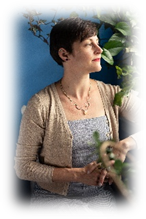 outside too. This longing wasn’t unfamiliar to me, however, asking myself this question was: “WHAT AM I DOING?!”. Clients come to me for therapy where we engage in out of the box problem solving and talk about nature as impactful self-care, however we continue to meet in this office that feels like a stifling box. This didn’t feel like the full potential of living or accessing the possibilities of creative healing, and I definitely didn’t feel like the enthusiastic role model I am.
outside too. This longing wasn’t unfamiliar to me, however, asking myself this question was: “WHAT AM I DOING?!”. Clients come to me for therapy where we engage in out of the box problem solving and talk about nature as impactful self-care, however we continue to meet in this office that feels like a stifling box. This didn’t feel like the full potential of living or accessing the possibilities of creative healing, and I definitely didn’t feel like the enthusiastic role model I am.
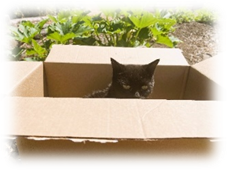 Working with many neurodivergent clients, I thought about how they often feel trapped and unfulfilled in typical conventional settings presented to them. As clients sat in the chair across from me, they would talk about how nature is one of their best coping skills that they just don’t seem to have time for or haven’t indulged in lately. I began to ask…. If my client and I were truly on this journey, growing together, what would therapy look like? How am I following the typical setting that is provided to me and what would it look like if I directed the therapeutic environment? My therapy environment would be creative, inspiring, and actively integrate the therapeutic practices discussed in sessions. It was time to GET OUT OF THIS BOX, and I began to imagine my ecotherapy urban farm home office.
Working with many neurodivergent clients, I thought about how they often feel trapped and unfulfilled in typical conventional settings presented to them. As clients sat in the chair across from me, they would talk about how nature is one of their best coping skills that they just don’t seem to have time for or haven’t indulged in lately. I began to ask…. If my client and I were truly on this journey, growing together, what would therapy look like? How am I following the typical setting that is provided to me and what would it look like if I directed the therapeutic environment? My therapy environment would be creative, inspiring, and actively integrate the therapeutic practices discussed in sessions. It was time to GET OUT OF THIS BOX, and I began to imagine my ecotherapy urban farm home office.
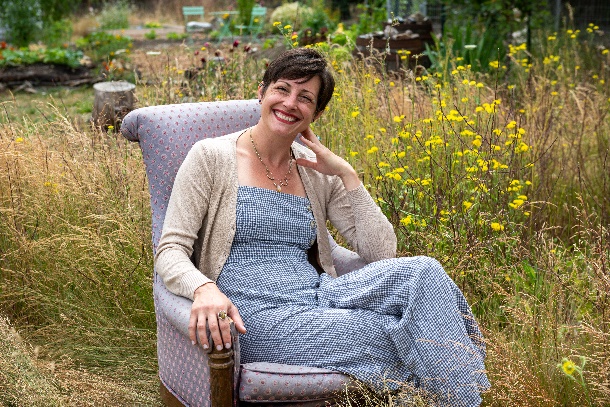

In the Oregon 2020 Census, only 5% of the population identified themselves as having a cognitive disability, however the current statistic is that 1 in 4 children are diagnosed as being somewhere on the Autism Spectrum. Considering these two statistics, I notice a gap in the projected number of people on the Autism Spectrum who would be residing in Oregon. I have worked with Autistic individuals for 15 years. I have observed the transition from fears and unknowns regarding an Autism diagnosis, into the increased understanding and value for someone identifying with the Autism Spectrum, including increase recognition of Neurodiversity to describe the Autistic brain.
I have had my private practice, Filtering Light Counseling since 2015. My specialty has grown to support Neurodivergent adults, young adults, teens, and their families. Many of my clients are recognizing later in their life, that their brain functions differently than projected, or what is described as “typical”. They are recognizing how living without reference of Neurodiversity, has caused challenges throughout their life. Late diagnosis usually means that as a youth they had differences in processing that weren’t addressed, and many have not been able to understand themselves as they reference models that never truly fit well for their needs. The Neurodivergent teens that I work with are actively responding to not fitting into conventional systems presented to them. Often, they are avoiding school, requesting for accommodations that are being denied, or questioning what their future will be like if they don’t want to follow the typical high school-college-job track for adulthood. What happens when people don’t feel their environment is a good fit, is it creates the idea that they don’t belong, or they need to change. When this occurs regularly, mental health starts to weaken, and often suicidal thoughts can surface.
There is a projected statistic in the studies by Simon Baren Cohen that 2/3rds of individuals on the Autism Spectrum report history of suicidal ideation. Supporting individuals who are suicidal for 8 years, I have come to recognize that often suicidal ideation is rooted within exhaustion from trying to fit into systems that don’t uplift an individual’s personality, needs or characteristics. To save the lives of the Autistic individual, we need to change the environments that they are expected to conform into.
Let’s save the Neurodivergent with Diversity in their therapy!
I perceive my therapeutic approach to save lives by encouraging success through creative options, with a result that increases understanding of themselves and development of feelings that they belong. Together, we identify how their brain works, respond to the unique needs, then nurture individual value and goals. I view this business to promote a counseling model that fosters successful integration of skills from the therapy setting into daily home life.
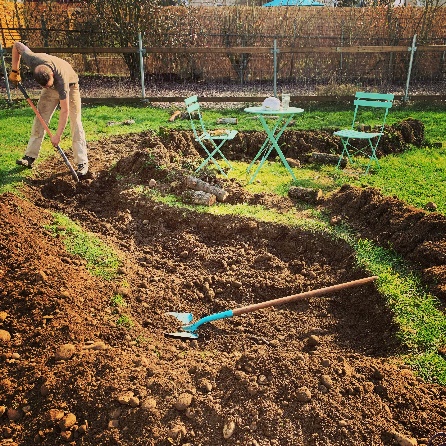
![]()
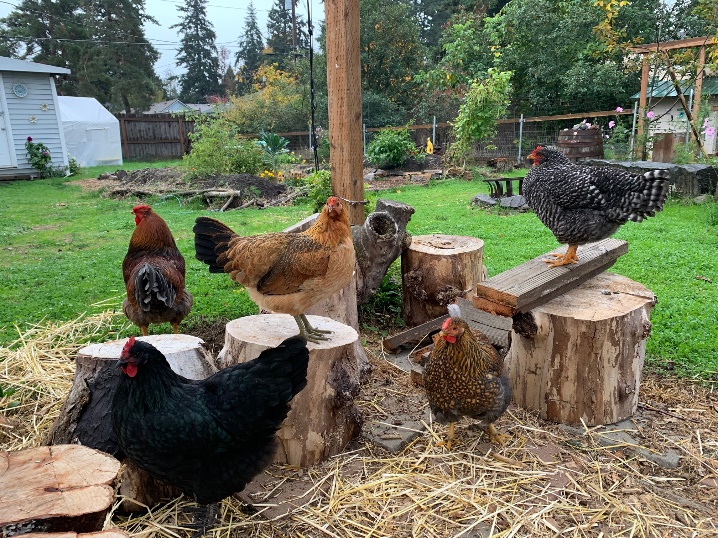
Starting my solo entrepreneur journey, I purchased a quaint home in 2020. Using my personal resources, knowledge, and design skills, I have been preparing the home to be a safe space that will host my therapy clients in an urban farm setting. The building permit is actively processing, and we are expecting it to be fully approved. The outdoor setting will be conducive for the neurodivergent due to the natural lighting, softer shapes, and choices in spaces to sit and talk. The backyard space includes several garden beds designated as food, flower, or medicinal plants. The fence also has been moved over to optimize land for the office. Finally, there is an extensive chicken run for my flock of sweet chickens.
I am now reaching a point in my build where I am asking for help in making this vision come true. I am seeking funding for the build of a Deck with a 16 ft Geodesic Dome.
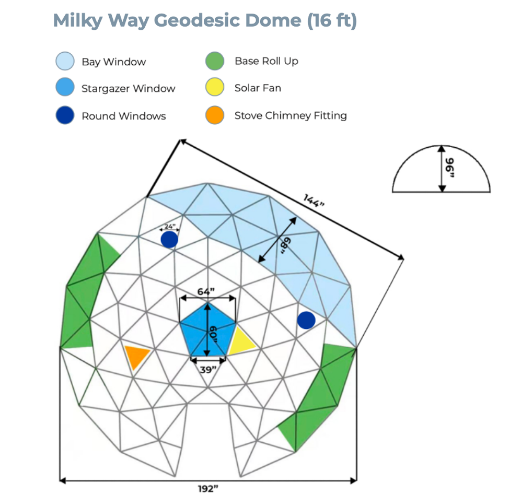
 I am requesting to raise $25,000.00 in support for:
I am requesting to raise $25,000.00 in support for:
Cedar Deck, 18ft x 18 ft, winterized for office space to sit on top: Estimate $5,000
Office Space: Geodesic Dome with wood burning fireplace: $8,297.00 https://www.redwoodoutdoors.com/products/milky-way-geodesic-dome-tent/
Rough estimate of Deck Labor and Geodesic Dome Labor $4,000
Office Building Permit $1,065 (every three years)
There is a lot of potential to build up Filtering Light Counseling.
If I am blessed to have additional funding come through this campaign, other projects that I do not currently have estimates for include: a greenhouse made of vintage windows, bee keeping, outdoor compost toilet, sitting areas, additional animals, and resources to increase platforms for reaching more youth and their families.
The office space will be used for individual therapy and groups. As able, I will also donate the space for others to host workshops. This type of an office will get us away from the industrial indoors that is often painful to a neurodivergent human, which has contrived lighting, and unnatural shapes. The Geodesic Dome has a window which will face the gardens and chicken run. It will actively bring clients into self-care and mindfulness practices with the soft qualities of nature, and activities of the garden (growing plants, harvesting plants, winterizing the garden) that will reconnect to the natural world. I hope to inspire clients to integrate nature into their daily practices, making it easier to choose outdoors over a screen, and shed away insecurities about trying to grow their own foods. Another goal within this project, is that I hope to influence a shift in philosophies within the mental health system and inspire other therapists and healers to follow the opportunities in caring for self just as much as they care of others. I am happy to report that I am already receiving feedback that these inspirations are happening!
I have developed each reward offering to keep all of my donors celebrating this space coming together. This special community is stepping up to transform therapy for the underserved neurodivergent a reality. I will have a scroll with names of my supporters of $200 and above, that future clients can look at and see representation of the community that came together to create space for them.
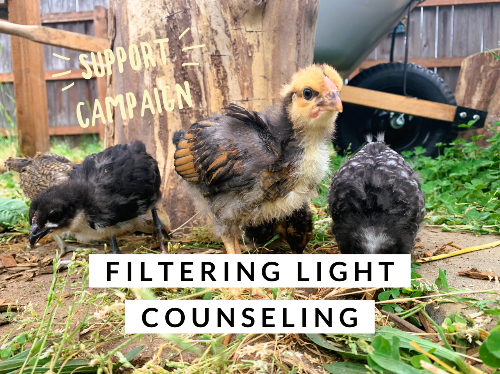
We appreciate any donation offerings you can provide, with just as much importance with sharing this campaign and passing it on to reach a wider audience of support.
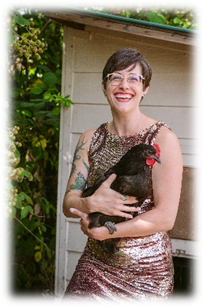 From the bottom of our hearts, we thank you for your support, and we hope you find inspiration through our story!
From the bottom of our hearts, we thank you for your support, and we hope you find inspiration through our story!
Kim Zeszutek LPC
Luna the Cat, Buddy Bean the Cat, Justice the Hen, Cleo the Hen, Gemma the Hen, Rebel the Hen, Alfredo the Rooster
…and all of the clients who will experience this unique office space.
Updates
The Campaign FAQs
Frequently Asked Questions:
Other resources to connect with Kim (and the animals):
Website: Filtering Light Counseling
You Tube: Kim Zeszutek and Filtering Light Counseling - YouTube
Instagram: FilteringLightCounseling
TikTok: @KimzeszutekNDedu
Define Neurodivergent:
Neurodivergence is a term for when someone's brain processes, learns, and/or behaves differently from what is considered the average condition of a brain. Often these clients have a diagnosis of Autism Spectrum Disorder or ADHD. (Neurodivergent: What Are the Signs of Neurodiversity? (verywellhealth.com))
Define Ecotherapy:
Mental health support using the lens of Ecopsychology, which recognizes how the industrial age has decreased our connection to nature and as a result surfaces psychological distress (recommended book Ecopsychology: Restoring the Earth Healing the Mind). Ecotherapy uses symbols found in the natural world, horticulture practices, mindfulness with nature, and walking outdoors, as ways of processing and supporting mental health.
Professional Information about Kimberly:
My full name is Kimberly Zeszutek (she/her), and I am a Licensed Professional Counselor in Oregon. My career began in Minnesota around 2007 when I started working as an ABA therapist. I received my Masters level counseling degree in 2014, in Denver Colorado, where I was employee supporting severe mental illness and had an internship that allowed me to explore ecopsychology. I moved to Oregon where I started my private practice Filtering Light Counseling LLC. My time in Oregon I have developed skills working with a local crisis team, providing counseling at a farm, and then at a full fidelity DBT clinic. I have been focusing full time on my private counseling practice since January 2022. The accumulation of all of my experiences has led me to specialize in therapeutically supporting populations who identify with Autism Spectrum, neurodivergence, complex PTSD, treatment resistant depression, and those experiencing suicidal ideation and engaging in self-harm behaviors. I provide individual sessions, parent coaching sessions, group therapy and psychoeducational material. Typical ages of my clients are Youth starting at 14, young adults, and adults.

A personalized thank you card art piece, watercolor, paint, colored pencil will be coming your way! This will be made by Kim and potentially her clients once in person.
In addition, your name will be recognized on a scroll hanging within the office space. Clients will be able to see the names of those who stepped up to create a community space for them. Reading your name there will be recognition of your donation and energetic gratitude to sent towards you on a regular basis.
You will also receive the link for the photo albums.
Please take note to include your email and address when completing the donation information.

Any amount counts and is met with deep gratitude, acknowledgment of care, and appreciation.

Donators will have private access to a Google Photo Album that will document progress of the ecotherapy site and Geodesic Dome. Album will be start to finish with the build and after 1 year of completion.
Please take special note to include your email when completing the information for your donation.

This is an opportunity to gain the informational videos Kim is posting without being on an app like TikTok. You will gain access to a google album which Kim will update with information videos posted regarding Autism Spectrum, Neurodivergence, and suggestions for parents for supporting their neurodivergent teen. Your questions and content inquiries will also be priority for videos made.
This package also includes access to the google album following the development of the ecotherapy office.

Next season we will be adding more Chickens, other animals, and building structures on site. Your contribution will be represented on the property in living form! It could be any name you want to contribute; Endless possibilities with this donation as really it is meant to be fun and for you to have apart creating the space.
This donation also includes the above rewards, link for the photo album and name on the contributor scroll.
Rewards

A personalized thank you card art piece, watercolor, paint, colored pencil will be coming your way! This will be made by Kim and potentially her clients once in person.
In addition, your name will be recognized on a scroll hanging within the office space. Clients will be able to see the names of those who stepped up to create a community space for them. Reading your name there will be recognition of your donation and energetic gratitude to sent towards you on a regular basis.
You will also receive the link for the photo albums.
Please take note to include your email and address when completing the donation information.

Any amount counts and is met with deep gratitude, acknowledgment of care, and appreciation.

Donators will have private access to a Google Photo Album that will document progress of the ecotherapy site and Geodesic Dome. Album will be start to finish with the build and after 1 year of completion.
Please take special note to include your email when completing the information for your donation.

This is an opportunity to gain the informational videos Kim is posting without being on an app like TikTok. You will gain access to a google album which Kim will update with information videos posted regarding Autism Spectrum, Neurodivergence, and suggestions for parents for supporting their neurodivergent teen. Your questions and content inquiries will also be priority for videos made.
This package also includes access to the google album following the development of the ecotherapy office.

Next season we will be adding more Chickens, other animals, and building structures on site. Your contribution will be represented on the property in living form! It could be any name you want to contribute; Endless possibilities with this donation as really it is meant to be fun and for you to have apart creating the space.
This donation also includes the above rewards, link for the photo album and name on the contributor scroll.